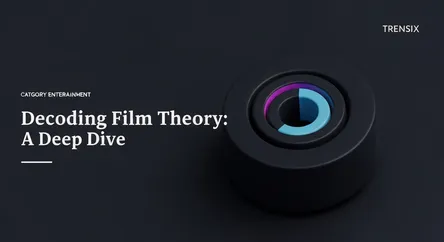Entertainment
Decoding Film Theory: A Deep Dive

Explore film theory, the academic study of cinema. Understand its core concepts and how it deepens our appreciation for the art of filmmaking.
What is it?
Film theory is a field of academic study that examines the nature of film and provides conceptual frameworks for understanding its relationship with viewers, society, and culture. It's not about reviewing movies, but rather analyzing the cinematic medium itself. Scholars use various theoretical lenses, such as formalism, which focuses on the technical aspects of filmmaking (editing, cinematography), or auteur theory, which views the director as the primary author of a film. Other prominent approaches include psychoanalytic theory, which explores the subconscious elements of cinema, and feminist film theory, which critiques the representation of gender. These frameworks help deconstruct how movies create meaning, evoke emotions, and reflect societal values.
Why is it trending?
The concept of film theory has surged in popularity beyond academia, largely thanks to the internet. Video essayists on platforms like YouTube have made complex theoretical ideas accessible and engaging for a mainstream audience. The rise of streaming services has also given viewers unprecedented access to a vast library of classic, international, and art-house films, sparking curiosity about the deeper meanings behind them. This has cultivated a community of cinephiles eager to discuss and analyze films with greater depth, moving beyond simple plot summaries to explore thematic and stylistic nuances.
How does it affect people?
Engaging with film theory fundamentally changes how people watch movies. It transforms a passive viewing experience into an active, critical one. Viewers learn to recognize artistic choices, understand visual language, and appreciate the layers of meaning embedded in a film's structure, sound design, and narrative. This heightened awareness can lead to a richer appreciation for filmmaking as an art form. It fosters critical thinking skills that are applicable beyond cinema, encouraging people to question the messages and ideologies presented in all forms of media they consume, making them more media-literate consumers.